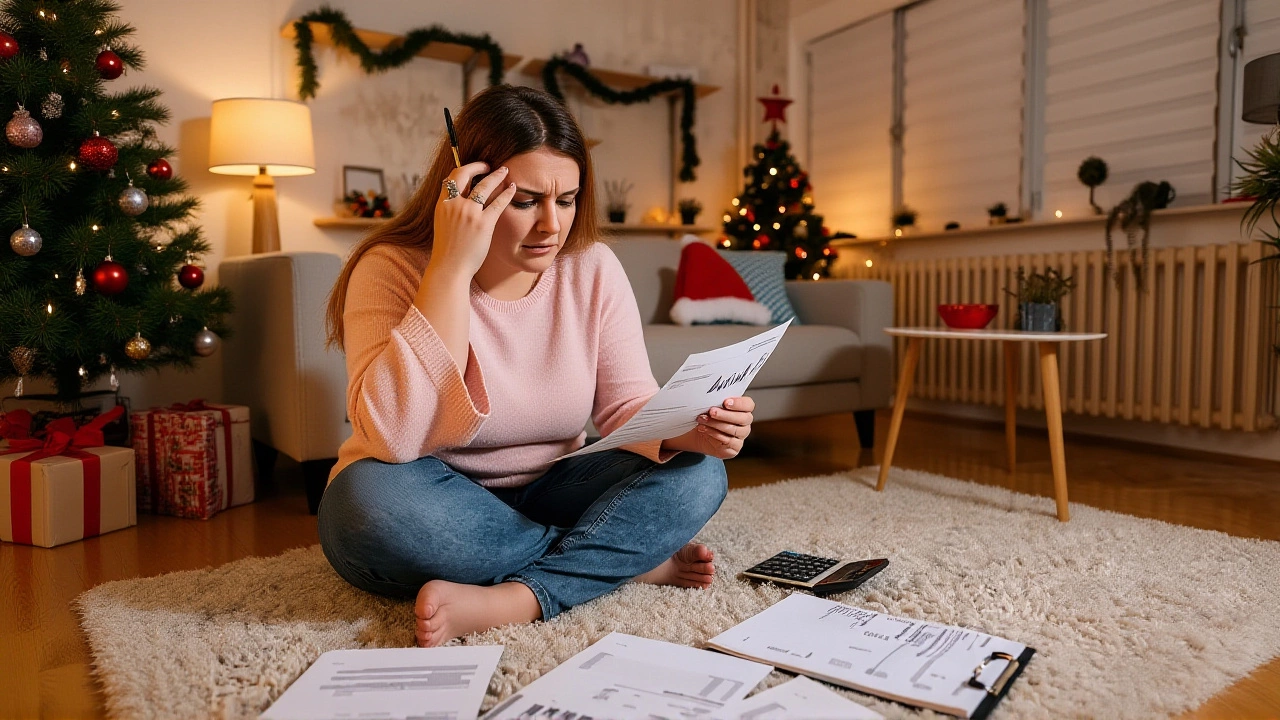Before Christmas 2025, more than two million people across the UK and its crown dependencies will receive a quiet but meaningful gesture: a £10 Christmas Bonus — tax-free, automatic, and requiring no application. The Department for Work and Pensions confirmed the payment will go out to anyone receiving one of 24 qualifying benefits during the qualifying week United Kingdom, defined as Monday, December 2, through Sunday, December 8, 2025. It’s not much money in today’s terms — barely enough for a turkey sandwich — but for many, it’s a small, reliable sign that the system still remembers them during the holidays.
Who Gets It? The 24 Benefits That Qualify
The list of qualifying benefits is narrow but deeply targeted. It’s not about income level — it’s about vulnerability. You don’t need to be on Universal Credit. You don’t need to be unemployed. You just need to be receiving one of these 24 payments during that one week in December. That includes the State Pension, Personal Independence Payment (PIP), Attendance Allowance, and Carer’s Allowance. But also lesser-known payments like War Widow’s Pension, Industrial Death Benefit, and Severe Disablement Allowance (for those grandfathered in).
Here’s the catch: if you’re not getting any of these during that exact week, you get nothing. No backdating. No appeals. No exceptions. Even if you claimed your State Pension the day after December 8, you’d miss out. The system doesn’t bend. It’s not cruel — it’s mechanical. And it’s been this way for decades.
Residency Rules: Where You Must Be to Qualify
You can’t be abroad. Not even for a holiday. The rules are strict: you must be physically present or ordinarily resident in the United Kingdom, the Channel Islands, the Isle of Man, or Gibraltar throughout the entire qualifying week. That means if you’re in Spain for Christmas, or visiting family in Poland, you’re out. Even if you’re a British citizen who’s lived abroad for 20 years, you won’t qualify.
And no, the European Economic Area doesn’t count anymore — not since Brexit. The DWP’s guidance is clear: if you’ve moved to an EEA country or Switzerland, you’re no longer eligible under this scheme. You’ll need to check local rules. That’s a change many retirees didn’t see coming. One pensioner in Malaga told me last year: “I used to get it every year. Now I just get a card from my nephew. That’s nice. But £10? That used to buy me a decent Christmas dinner.”

How It Works: No Application, No Hassle
This is one of the few government payments that truly works without you having to lift a finger. The Department for Work and Pensions doesn’t send letters. It doesn’t ask you to fill out forms. It just looks at its own databases — real-time, automated — to see who’s getting a qualifying benefit during the first full week of December. If you’re on the list, the money lands in your account by December 24. No delays. No confusion. Just £10.
It’s administered through HM Revenue and Customs systems, routed via the same channels as your benefit payments. The DWP’s processing centers in Newcastle, Blackpool, and Glasgow handle the logistics. The entire operation is rooted in Section 133 of the Social Security Administration Act 1992, updated in 2018 to include devolved benefits like Scotland’s Adult Disability Payment. There’s no political fanfare. No press releases. Just a quiet, annual act of recognition.
Why £10? And Why Still?
The amount hasn’t changed since the 1970s. Not adjusted for inflation. Not indexed to prices. Not even rounded up to £15. It’s £10. And it’s stayed that way because, oddly, it’s never been about the money. It’s about the message.
“It’s symbolic,” says Dr. Eleanor Finch, a social policy researcher at the University of Bristol. “It’s not meant to cover heating bills. It’s meant to say: ‘We see you. We haven’t forgotten you during the holidays.’”
Some argue it’s outdated. Others say it’s one of the last remaining universal gestures in a fragmented welfare state. Either way, it survives because it costs almost nothing — less than £25 million total — and touches so many lives. And for those who rely on it? It’s more than cash. It’s dignity.

What’s Next? Will It Last?
The payment is renewed annually through the DWP’s Estimates process. No legislation is needed — just a ministerial decision. There are no current plans to scrap it. In fact, opposition parties have repeatedly pledged to protect it. But with rising public spending pressures, and a government focused on “targeted” support, it’s fair to wonder: is this the last decade of the Christmas Bonus?
For now, the answer is yes — it’s still coming. And for the people who’ve counted on it for 50 years, that’s enough.
Frequently Asked Questions
Do I need to apply for the Christmas Bonus?
No. The payment is entirely automatic. If you’re receiving one of the 24 qualifying benefits during the qualifying week (December 2–8, 2025), the Department for Work and Pensions will identify you through existing benefit records and issue the £10 directly into your bank account by December 24. No forms, no calls, no applications.
What if I’m on Pension Credit but only get the savings credit part?
You won’t qualify. Only the guarantee element of Pension Credit counts. The savings credit portion — which is paid to those with some private income — does not trigger eligibility. This is a common point of confusion. The DWP’s system only checks for the guarantee element, so if you’re unsure, check your award notice or contact the Pension Service directly.
Can I get the bonus if I live in Northern Ireland or Wales?
Yes. The Christmas Bonus applies across the entire United Kingdom — including Northern Ireland and Wales — as well as the Channel Islands, Isle of Man, and Gibraltar. Devolved benefits like Scotland’s Adult Disability Payment and Wales’s Carer Support Payment are explicitly included. The payment is uniform nationwide, administered centrally by the Department for Work and Pensions.
Why isn’t the bonus increased for inflation?
The £10 amount has remained unchanged since the 1970s and is not indexed to inflation. The government treats it as a symbolic gesture rather than financial support. Critics argue it’s outdated, but supporters say its value lies in its consistency — it’s a tradition, not a benefit adjustment. Increasing it would require new legislation, which has never been prioritized despite occasional parliamentary motions.
What if I’m in hospital during the qualifying week?
You still qualify. The rules state you must be “ordinarily resident” in the UK or its territories during the qualifying week — being in hospital doesn’t break that. As long as your usual home is in an eligible area and you’re receiving a qualifying benefit, your location during the week (even if temporarily in a hospital) doesn’t affect eligibility.
Will I get the bonus if I’m awaiting a decision on a benefit claim?
No. You must be actively receiving one of the 24 qualifying benefits during the exact week of December 2–8, 2025. Pending claims, even those likely to be approved, do not count. The system checks live entitlement data as of that week. If you’re approved after December 8, you won’t receive a retroactive payment — and there’s no appeals process for this.
